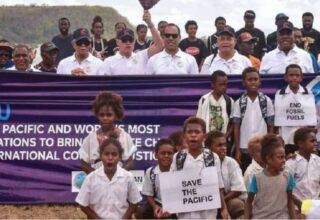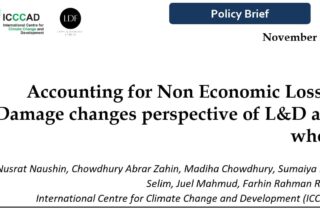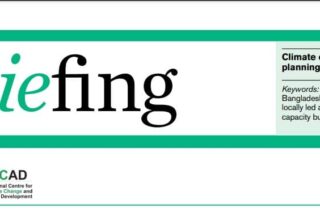For over a decade, researchers and policymakers have considered enhancing “adaptive capacity” to be a linchpin of successful adaptation to climate change. In 2015, at the 21st Conference of Parties in Paris, the international community formally asserted the importance of increasing the ability of individuals and groups to adapt to long-term changes in the climate, and committed to doing so through the Paris Agreement. Article 7 of the Paris Agreement, the “Global Goal on Adaptation” (GGA), commits signatory countries to “enhancing adaptive capacity, strengthening resilience and reducing vulnerability to climate change, with a view to contributing to sustainable development and ensuring an adequate adaptation response in the context of the temperature goal.”1
There are many challenges to measuring adaptation, and there is currently no internationally accepted tool for doing so. Craft and Fisher (2018)2 identify four main challenges to measurement for the GGA: designing a system that can aggregate results; managing the dual mandate of reviewing collective progress and informing the enhancement of national level actions; methodological challenges in adaptation; and political challenges around measurement. Drawing from their insights, we construct a multi-scalar, contextually flexible, multi-method based framework for measuring one central component of adaptation: adaptive capacity.
The Full Policy Brief Available Here [PDF]







